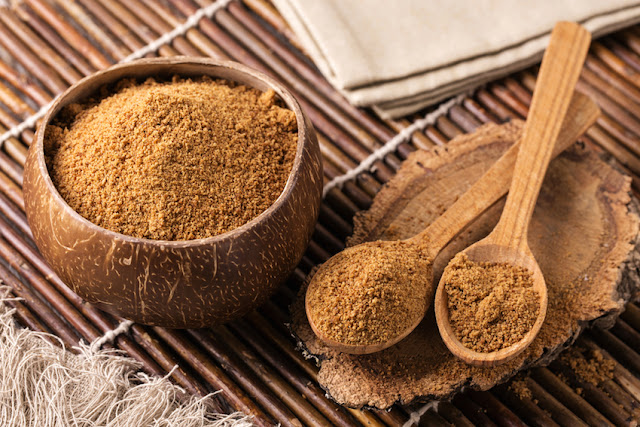Coconut sugar, also called coconut palm sugar, palm sugar, and coconut crystals/nectar is rapidly becoming a popular natural sweetener in households across the US. But before that, coconut sugar has been used as a sweetener for hundreds of years for the people of Southeast Asia, especially Indonesia and the Philippines.
Coconut sugar has a sweet taste like caramel, it can be used easily to replace cane sugar in all recipes. In fact, according to many chefs, food which uses palm sugar as the sweetener has a better taste.
Many people may think that coconut sugar is rich in nutrients or nutritional superfood, because the fact is not like that. But compared to other sweeteners, coconut sugar contains more nutrients. It contains trace amounts of vitamin C, potassium, phosphorous, magnesium, calcium, zinc, iron and copper. Coconut sugar also provides small amounts of phytonutrients, such as polyphenols, flavonoids and anthocyanidin, and antioxidants. You'll also find the B vitamin inositol, often used as a mood booster, in coconut sugar.
One appeal that makes many people will switch to coconut sugar because it has a Low Glycemic Impact. The glycemic index measures the effects of carbohydrates on your blood sugar. Coconut sugar ranks just 35 on this index, while regular table sugar ranks between 60 and 75. Foods high on the glycemic index cause your blood sugar to spike, which can lead to a sugar rush and subsequent crash. Fast spikes in blood sugar can also cause your insulin levels to soar in a short period of time, and this can have serious consequences for diabetics. So it can be concluded that coconut sugar is a friendly sweetener for diabetics.
